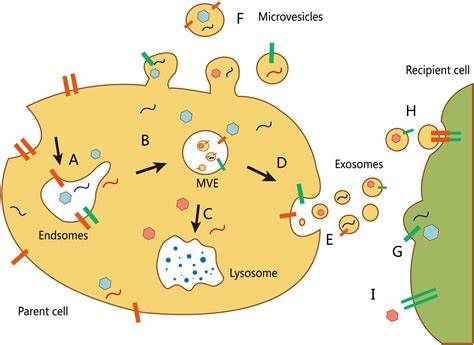The Characteristic RNA Changes in Blood Exosomes of Patients with Liver Cancer
According to preliminary data provided at the annual conference of the American Association for Cancer Research (AACR) in Atlanta, Georgia, on March 31, 2019, RNA sequencing may help doctors diagnose hepatocellular carcinoma earlier (Hepatocellular carcinoma, HCC).
Hepatocellular carcinoma is the most common type of liver cancer, accounting for 65% of US liver cancer cases. Chronic hepatitis B and hepatitis C infection, alcohol-related liver scarring, and nonalcoholic fatty liver disease are major risk factors for this disease. In the United States, the incidence of hepatocellular carcinoma has increased from 1.4/100000 per year in the late 1970s to 6.2/100000 in 2011, and is expected to persist for at least the next decade due to obesity and hepatitis B increase. Liver scars are also known as cirrhosis. Any damage to the liver can lead to cirrhosis, which makes patients with a high risk of hepatocellular carcinoma. 80% to 90% of patients with hepatocellular carcinoma is the first to have cirrhosis.
In order to detect this cancer as early as possible, patients with cirrhosis undergo an ultrasound and blood test every six months in order to find signs of tumor production. However, Augusto Villaneuva, a hematologist and oncologist at the Icahn School of Medicine in Mount Sinai, USA, points out that the current test method only identifies about 63% of cases, which promotes doctors and patients to find more sensitive screening methods.
Villanueva, one of the researchers said that, ‘We need new tools that can help us find tumors earlier.’ Villanueva and his team collected blood samples from 15 patients, of which 10 had liver cancer and 5 had cirrhosis but no cancer. They developed a way to separate exosomes in the blood -- tiny vesicles carrying proteins or genetic material -- to compare their contents. They found that some RNA in exosomes from cancer patients increased significantly compared to those who did not develop cancer.
The Villanueva team provided data on these 15 patients at the annual meeting of the American Association for Cancer Research and hoped to sequence exosomes from 150 volunteers to determine if this trend was consistent.
As they develop better screening methods, they hope to understand that the composition of these exosomes may lead to new therapies. The researchers wondered if changes in RNA would make exosomes more "aggressive" or could alter tumors. They will focus on this research project and expect the further development can be applied in clinical.


Your email address will not be published. Required fields are marked *